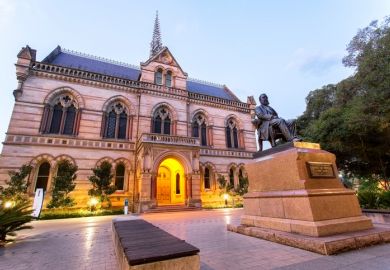South Australia’s corruption watchdog is investigating allegations of improper conduct by University of Adelaide vice-chancellor Peter Rathjen, and the university’s handling of the allegations.
The state’s Independent Commissioner Against Corruption (ICAC), Bruce Lander, said the investigation concerned “potential issues of serious or systemic misconduct and maladministration, not corruption”.
He said he would not go into further detail about the nature of the allegations. The university had promised “full cooperation”.
Mr Lander said he did not normally confirm or deny his investigations but had decided to do so in this case because of the “intense speculation” around the sudden unexplained departure of Professor Rathjen and chancellor Kevin Scarce.
The university announced that Professor Rathjen had been granted indefinite special leave on 5 May, after Rear Admiral Scarce’s abrupt resignation the previous evening. Adelaide staff have been warned of potential legal repercussions if they discuss the reasons.
“The law places restraints on what can be said about an ICAC investigation,” deputy chancellor Catherine Branson stressed in an email to staff and students. “While it is natural for us to want to know more about what is happening, we need to remember that this is a matter for the ICAC.”
Mr Lander said he operated upon legislation “predicated upon investigations being conducted in private”, but he was worried that continued speculation about the two leaders could inflict “unnecessary negative impact on the university’s operations”.
He said the investigation had “only just commenced” and “must not be construed as a finding that any person has engaged in impropriety. That will be a matter for findings at the conclusion of the investigation.”
He did not commit to releasing the investigation’s outcomes, saying the legislation obliged him to consider whether publicising the results of completed investigations was “in the public interest”.
Register to continue
Why register?
- Registration is free and only takes a moment
- Once registered, you can read 3 articles a month
- Sign up for our newsletter
Subscribe
Or subscribe for unlimited access to:
- Unlimited access to news, views, insights & reviews
- Digital editions
- Digital access to THE’s university and college rankings analysis
Already registered or a current subscriber?






